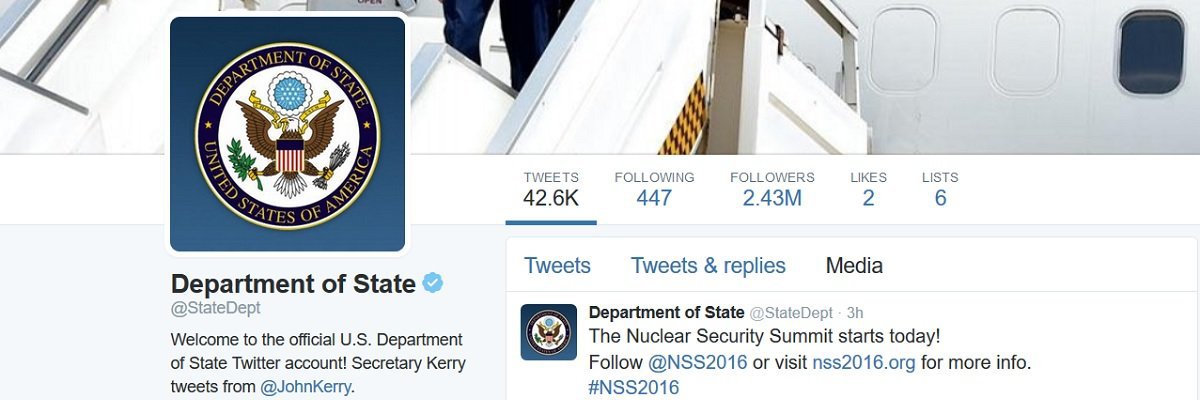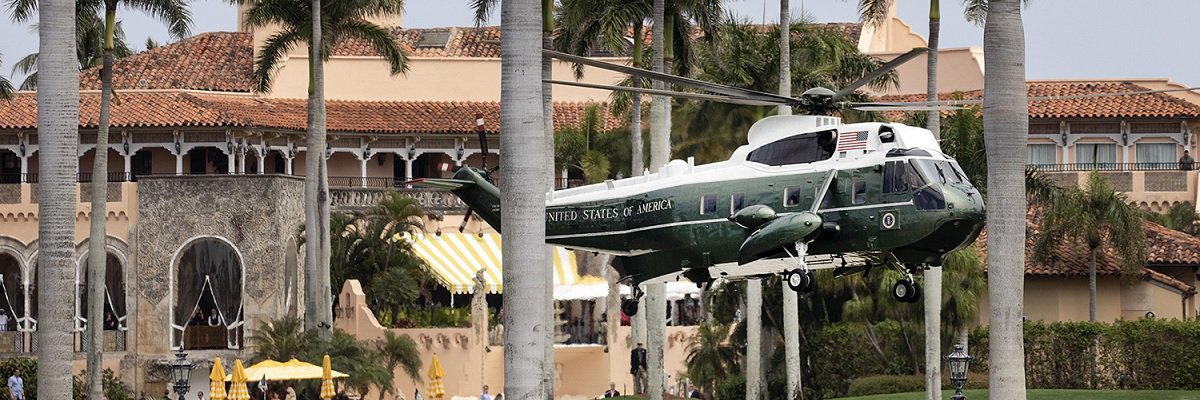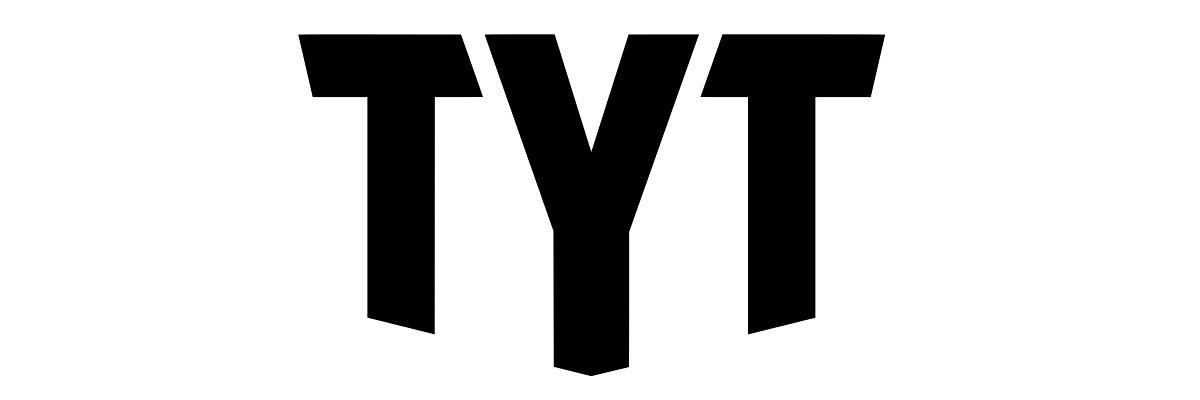According to the U.S. State Department, Twitter users, Facebookers and Instagrammers are officially a source of information. The State Department’s Digital Media Strategy, created in 2010, says “people with significant online followings are essentially broadcasters today.”
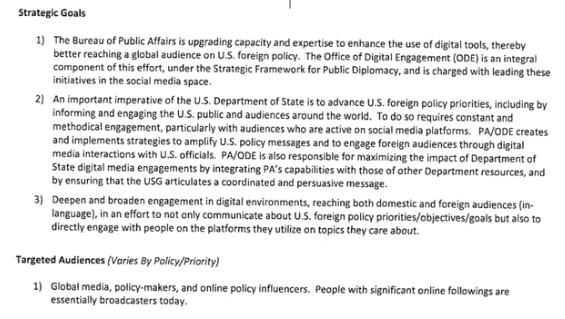
The strategy is part of the larger Social Media Policy the DOS created, which reads half like a marketing campaign, half like a legal document. The State Department wants its legal bases covered, going so far as to instruct employees when posting to “clearly indicate that an employee of the Department created the post, and in what capacity.”
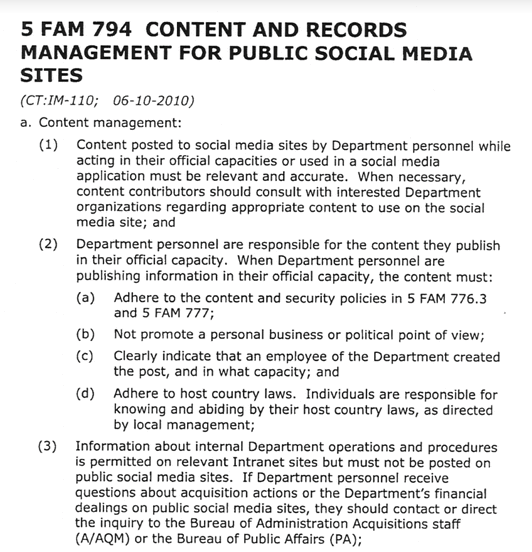
Time after time, the policy - or 5 Foreign Affairs Manual (FAM) 790 - cites a growing need for “online diplomacy” to replace traditional means, making the aim of the policy extraordinarily clear. However, staying hip with the youth of the world might be difficult when you have to stamp your Tweet with the “capacity” of your employment.
The State Department’s Digital Communications Center (DCC), which is in charge of their social media campaign, claims to be “uniquely positioned to provide primary source material to the public, thereby offering what a traditional news outlet cannot.” They also define what kinds of things the department’s social sites would post, citing themes of “democracy, good governance and human rights.”
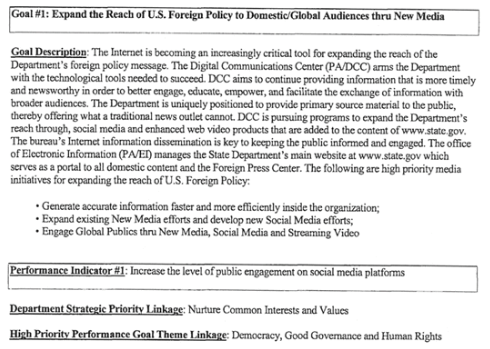
The policy spends a good deal of time outlining how DOS employees are to interact with the public through social media. The same section that tells employees they aren’t allowed to advertise through social media also restricts whether they can post links at all. “Personnel may post links in limited circumstances, but only for informational, not promotional, purposes.”
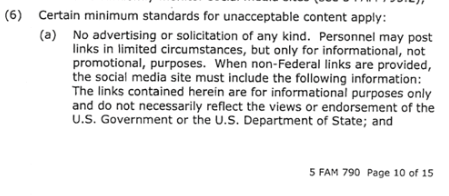
The policy makes it clear that social media sites run by the DOS can’t be used to collect personal information from the public. It does, however, warn employees that it goes both ways.

A section on what happens in case of “security incidents,” or when sensitive or classified information is released by employees in charge of social media sites, admits that once information is out there, it’s hard to control what happens to it. “Specific corrective action may not be possible because the Department does not control commercial social media sites,” the policy says under the “Security Requirements, Incident Handling and Risk Assessment” section.
The DOS also recognizes that internally, they operate in a “risk-averse, high clearance culture.” In other words, there’s a general attitude towards keeping information under control and access restrictive.
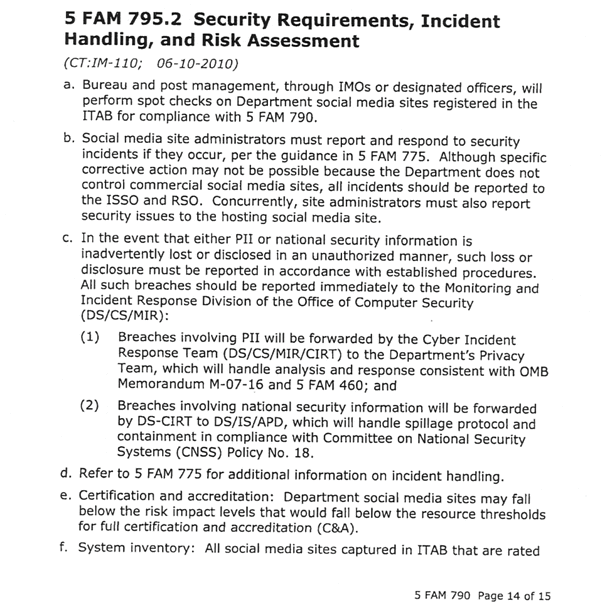
The report recognizes the disconnect, saying that culture “works against more effective use of social media tools,” and that senior leadership and “social media practitioners” have been promoting “more open use of social media and exposure to the media” in contrast to the DOS attitudes.
The DOS and DCC also expected to spend a little more annually on four new positions to run the DOS social media presence. They allotted $240,000 for the new hires:
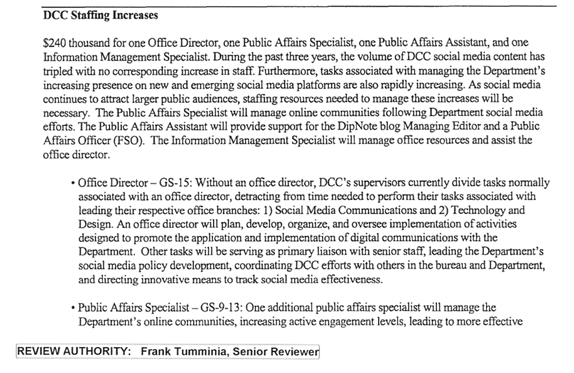
Read the full document embedded below, or on the request page:
Image via @StateDept
